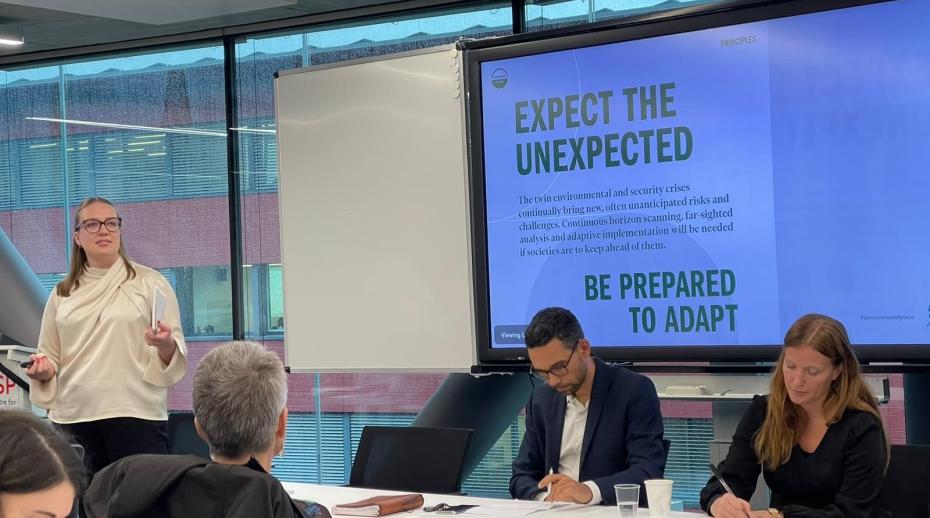
SIPRI participated in two workshops at the 10th edition of Geneva Peace Week (GPW), which took place on 30 October to 3 November. The event is an annual forum though which organizations in Geneva and their international partners come together to share knowledge and practice on topics related to peace.
On 2 November, SIPRI Research Assistant Anniek Barnhoorn spoke at the workshop ‘Fostering Collaborative Solutions at the Nexus of Climate, Environment and Peace’. This interactive workshop brought together practitioners, researchers, policymakers and donors working at the intersection of environment, climate, peace and development. The session aimed to develop a vision for responding to the barriers to collaboration between stakeholders working at this intersection. The workshop was co-organized by SIPRI, the World Bank, the Kofi Annan Foundation, Conservation International and the International Union for Conservation of Nature. The discussions from the workshop will be compiled and published on the Kofi Annan Foundation website.
Additionally, the HDP Nexus Coalition, which includes SIPRI, co-organized the workshop ‘Complexities of Local Peace: Climate Change, Forced Displacement and Decent Work’ with the Food and Agriculture Organization of the United Nations, the International Labour Organization, Interpeace and the UN Refugee Agency. The workshop explored how to address the impacts of climate change on forcibly displaced people and their hosts, while facilitating a transition to living incomes. A significant proportion of refugees rely on humanitarian assistance, yet they have skills and experience in agriculture. Participants discussed examples of best practice in working with these communities to address climate change, inclusivity, food system resilience and decent work and what the implications are for local peacebuilding approaches.
Click here to access selected resources on the Kofi Annan Foundation website from the workshop on fostering collaborative solutions.
About SIPRI’s work on climate change and risk
SIPRI’s work on climate change and risk provides reliable insights on how climate-related security risks evolve and how they are interlinked and interact with different social, political and economic processes. SIPRI researchers also analyse how different policy organizations are responding to these risks and provide advice on conflict-sensitive adaptation, mitigation strategies and how international efforts for sustaining peace can be achieved.
Click here to read more about SIPRI’s work on climate change and risk.